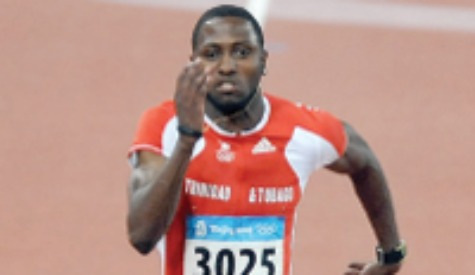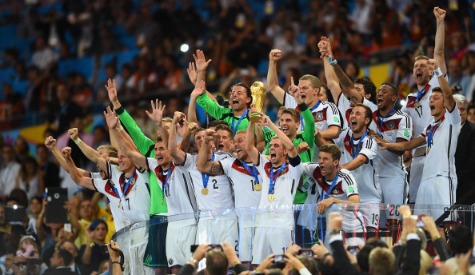 As the drama that is general elections in T&T begins in earnest, there are calls for a greater quality of public engagement. Concerns have been expressed in many quarters. There is a pervading sense of frustration and anger as the populace seeks answers to the fundamental question—what will the future hold for the twin island republic?
As the drama that is general elections in T&T begins in earnest, there are calls for a greater quality of public engagement. Concerns have been expressed in many quarters. There is a pervading sense of frustration and anger as the populace seeks answers to the fundamental question—what will the future hold for the twin island republic?
The very same concerns have been expressed within sport about sport in T&T. The perception of uncertainty is dominating mind space. People have negative emotions–they are in fight or flight mode. They are anxious and insecure. Uncertainty is stifling confidence, notwithstanding the fact that many people are feeling beleaguered and angry. The nation building process is at work.
Somewhat hesitantly our society is waking up to the reality and challenge of shaping the country and society it wants.
Some people and organisations will buckle under the pressure sinking into despair losing confidence, while others will bend and bounce back.
Changing from negative to positive emotions about the situation will require resilience as distinct from optimism.
Without denying the facts, resilience is needed. Resilient people possess three defining characteristics; they accept the harsh realities facing them. They find meaning and purpose in difficult times. And they find a way to innovate, create and be inventive making do with the resources that are available. Right now in T&T resilience and learning to be resilient is important.
We have to build the bridge to a better future by facing up to the reality of our situation. Wishful thinking and denial will not wipe our problems and issues away. We have to get out of the victim mode and thinking.
This is not to say that being optimistic should be used to distort reality. By the same token optimism can be turned into denial with dire consequences. Optimism has its place and should be encouraged.
Resilience on the other hand is pragmatic about the reality.
National Sport Organisations (NSOs) can’t remain on the periphery of the dialogue and discussions. Sport must play a key role in articulating the role sport can and must play in the immediate, near and long term future of T&T.
Facing and confronting reality can be unpleasant but it allows us to prepare for the challenges that must be overcome.
Organisational resilience requires having strong value systems. Strong value systems allow an organisation to share a common set of values that are core and that can be used to hold an organisation together in hard times. Important decisions are shaped by the value system. In the main strategy and mission may change but values remain constant.
Recently while browsing through two books—A History of Modern Trinidad 1783-1962 by Bridget Brereton and Inward Hunger by Dr Eric Williams—history provided compelling clues and lessons.
Making sense of what’s happening currently in T&T when looked through the prism of history is easier. There are deep historical and social dimensions and constructs that shape the response of our society.
There are subtleties at play that aren’t obvious and the natural consequence is a lack of context and understanding.
T&T is entering a new and different dynamic. Our society is evolving and wrestling with the issues of nation building.
Every aspect of T&T life is being challenged—old and existing value systems, norms and cultures. Nothing is sacrosanct.
It’s an exciting time for T&T.
The debate and discussions are necessary and should be encouraged. Now is not the time for intolerance. We must welcome and embrace the diversity of views, values, lifestyles and opinions.
We are defining what we want social progress to look like. Reaching our full potential individually and collectively demands that we welcome the current convulsions and not be afraid or traumatised by them.

 …opens season with windy 200 win
…opens season with windy 200 win FIFA Presidential candidate Prince Ali Bin Al Hussein today published his manifesto to reform football's world governing body, with the establishment of a formal continental rotation system for the World Cup among its key elements.
FIFA Presidential candidate Prince Ali Bin Al Hussein today published his manifesto to reform football's world governing body, with the establishment of a formal continental rotation system for the World Cup among its key elements. Prince Ali claimed there was a "culture of intimidation" within football's governing body at the launch of his campaign in February and insisted he cannot be a part of FIFA if incumbent President Sepp Blatter is re-elected.
Prince Ali claimed there was a "culture of intimidation" within football's governing body at the launch of his campaign in February and insisted he cannot be a part of FIFA if incumbent President Sepp Blatter is re-elected. The evaluation and optimisation of the international match calendar is another prominent pledge, with a review of the world ranking system and a full and open debate about the place of technology in football also proposed.
The evaluation and optimisation of the international match calendar is another prominent pledge, with a review of the world ranking system and a full and open debate about the place of technology in football also proposed. Five gold medals, one silver and two bronze, were on the cards for the Trinidad and Tobago swim team on the opening night of the 2015 Carifta Championships at the Barbados Aquatic Centre Friday night. The effort in the pool was boosted in the Boys’ 15-17 4x100m relay, where the T&T team won gold, clocking three minutes, 36.50 seconds. Currently, the national team stands at third on the overall standings after the first day of competition.
Five gold medals, one silver and two bronze, were on the cards for the Trinidad and Tobago swim team on the opening night of the 2015 Carifta Championships at the Barbados Aquatic Centre Friday night. The effort in the pool was boosted in the Boys’ 15-17 4x100m relay, where the T&T team won gold, clocking three minutes, 36.50 seconds. Currently, the national team stands at third on the overall standings after the first day of competition. Silver for St Clair, Briggs, James
Silver for St Clair, Briggs, James Jeminise Parris will make her Carifta Games under-20 debut in St Kitts and Nevis on the weekend.
Jeminise Parris will make her Carifta Games under-20 debut in St Kitts and Nevis on the weekend.